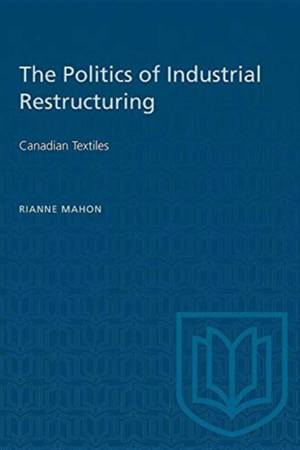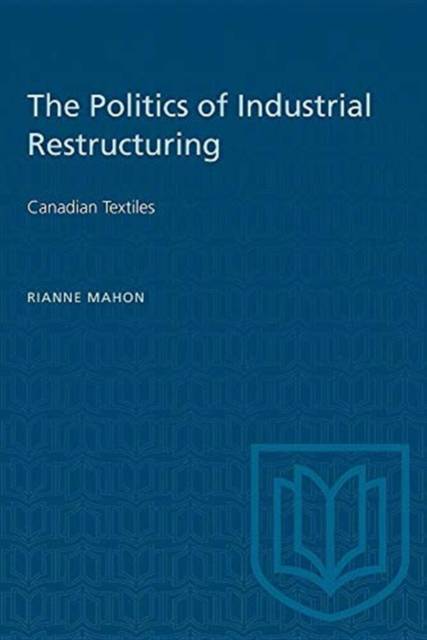
- Retrait gratuit dans votre magasin Club
- 7.000.000 titres dans notre catalogue
- Payer en toute sécurité
- Toujours un magasin près de chez vous
- Retrait gratuit dans votre magasin Club
- 7.000.0000 titres dans notre catalogue
- Payer en toute sécurité
- Toujours un magasin près de chez vous
Description
In the late 1960s the Waffle raised the spectre of the 'deindustrialization' of the Canadian economy -- a prospect which was linked to the power of foreign-controlled subsidiaries. Professor Mahon argues here that the threat of deindustrialization actually first appeared in a sector then dominated by Canadian capital -- textiles. Moreover, Mahon suggests that the Canadian state cannot act in the narrow interests of dominant capitals. Rather, in order to secure their political interests, it will have to take measures to restore Canada's industrial base. Its choice from among the main alternative industrial strategies -- continental rationalization, technological sovereignty, and full employment -- will be determined by the outcome of a series of political conflicts.
This important book analyses the first industrial policy to emerge from these recent debates on industrial strategy. It goes beyond earlier studies in its treatment of 'new protectionism' by arguing that import regulation is but one component of a broader policy promoting technological modernization and continental rationalization. It also makes a contribution to the ongoing debate in political economy about the role and nature of the Canadian state, emphasizing its organization of an unequal but positive-sum relationship within and between classes. Such an organization cannot allow deindustrialization to occur and so must find a new basis for compromise. An industrial strategy is that basis.
Students of politics and public policy formation will find of interest the descriptions on how problems become issues that the state cannot ignore, on the structuring of unequal representation in making policy, and others. The theoretical perspectives can illuminate far more than the recent history of national policy in regard to textiles.
Spécifications
Parties prenantes
- Auteur(s) :
- Editeur:
Contenu
- Nombre de pages :
- 216
- Langue:
- Anglais
- Collection :
Caractéristiques
- EAN:
- 9780802065469
- Date de parution :
- 01-12-84
- Format:
- Livre broché
- Format numérique:
- Trade paperback (VS)
- Dimensions :
- 156 mm x 234 mm
- Poids :
- 312 g

Les avis
Nous publions uniquement les avis qui respectent les conditions requises. Consultez nos conditions pour les avis.






